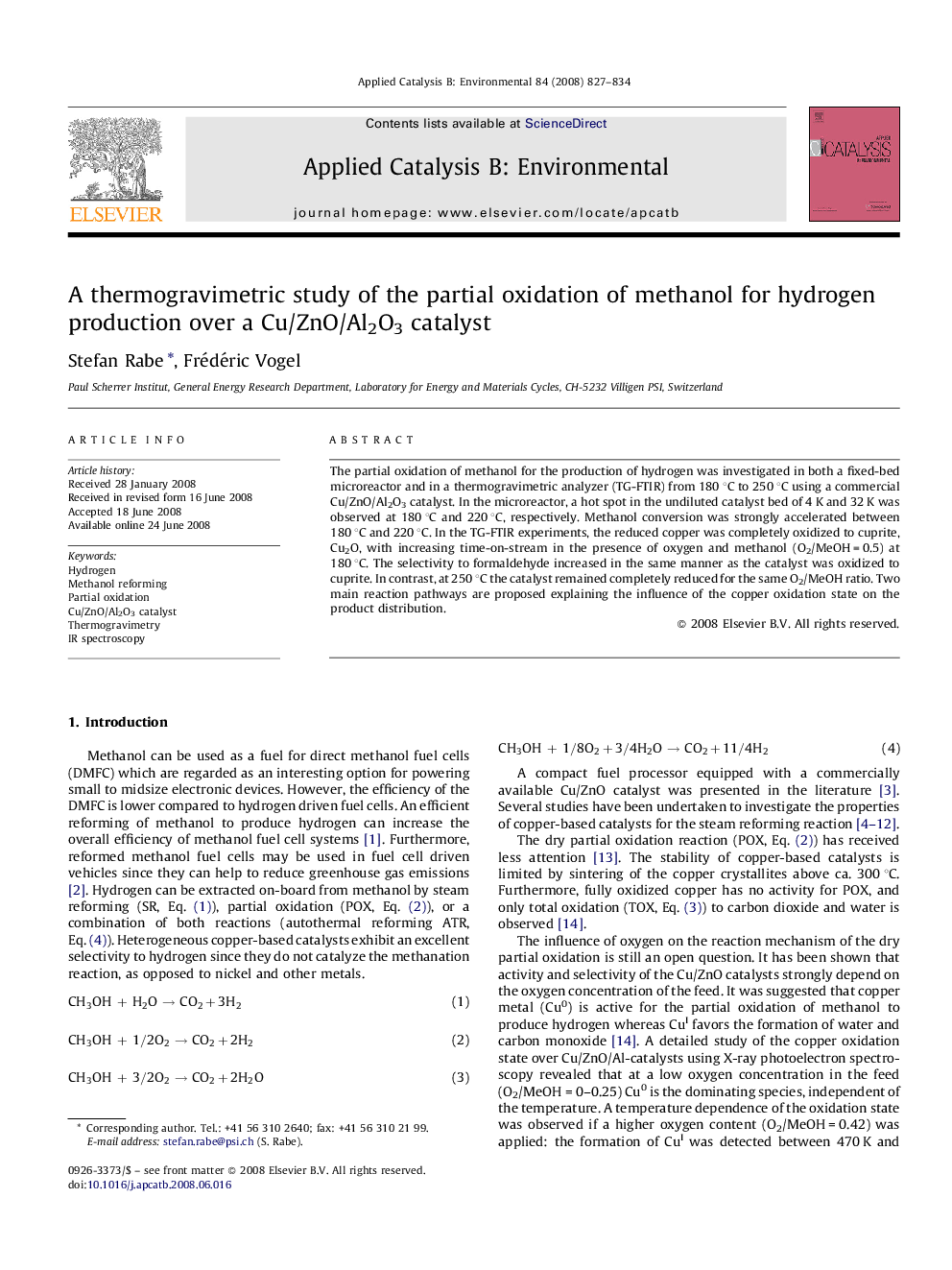| Article ID | Journal | Published Year | Pages | File Type |
|---|---|---|---|---|
| 48226 | Applied Catalysis B: Environmental | 2008 | 8 Pages |
The partial oxidation of methanol for the production of hydrogen was investigated in both a fixed-bed microreactor and in a thermogravimetric analyzer (TG-FTIR) from 180 °C to 250 °C using a commercial Cu/ZnO/Al2O3 catalyst. In the microreactor, a hot spot in the undiluted catalyst bed of 4 K and 32 K was observed at 180 °C and 220 °C, respectively. Methanol conversion was strongly accelerated between 180 °C and 220 °C. In the TG-FTIR experiments, the reduced copper was completely oxidized to cuprite, Cu2O, with increasing time-on-stream in the presence of oxygen and methanol (O2/MeOH = 0.5) at 180 °C. The selectivity to formaldehyde increased in the same manner as the catalyst was oxidized to cuprite. In contrast, at 250 °C the catalyst remained completely reduced for the same O2/MeOH ratio. Two main reaction pathways are proposed explaining the influence of the copper oxidation state on the product distribution.
